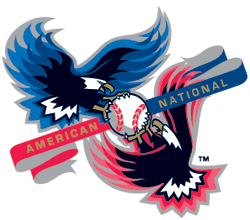http://www.nypost.com/seven/05172008/sports/mets/willie_or_wont_he__111256.htm?page=2
Willie Watch & The All Star Game
http://www.nypost.com/seven/05172008/sports/mets/willie_or_wont_he__111256.htm?page=2
What Mets fans talk about when not talking about the actual games.

Not sure what to make of this. …a post about Wally replacing Willie – then the theory withdrawn. I link, you decide.
http://brooklynmetfan.com/?p=843
Here’s the tease:
*** UPDATE – It has been brought to BMF’s attention by people in the know that SNY was in fact resistant to air this series and word is Backman is no where near the top of the list of potential future managers. So I guess I’m way off base with the post below. Oh well it sure was a good theory while it lasted!***
BMF was shocked when I flipped on SNY friday afternoon only to find “Playing For Peanuts” a half hour documentary series on Wally Backman’s return to managing in the independent league for the South Georgia Peanuts.
> Heard Wagner doing a major backpedal claiming he wasn’t calling anyone out. Stick to your guns Wags – we all heard the audio.
Heard Wagner doing a major backpedal claiming he wasn’t calling anyone out. Stick to your guns Wags – we all heard the audio.
The Canadian press is reporting:
Mets manager Willie Randolph called a closed-door meeting in response to the latest remarks by closer Billy Wagner, who said Friday he was being critical of the media, not his teammates. “I don’t try to insulate them. I don’t care that they know that my head’s on the block or something like that. I mean, that shouldn’t be their concern,” he said before Friday’s Subway Series opener at Yankee Stadium was postponed by rain.
Asked as a follow-up whether he thought his job was in danger, Randolph said he wasn’t speaking seriously.
“I’m not concerned about that,” he responded. “I was just making just a joke, a tongue-in-cheek kind of thing.”
Third baseman David Wright called the session a “heart to heart” in which teammates were encouraged to approach each other with criticism and not go through the media.
General manager Omar Minaya said Randolph’s job wasn’t in danger.
“I’m very supportive and continue to be supportive of Willie Randolph,” he said.
The full piece is here.
http://canadianpress.google.com/article/ALeqM5hRB5fC0J-y1earJJK_GGsgzRR7Aw
> This weekend you get the “good” series – Subway, Battle of Ohio, LA vs LA of Anaheim. Also some legenday matchups like Rays-Cards, Tigers-Diamondacks, and Padres-Mariners.
This weekend you get the “good” series – Subway, Battle of Ohio, LA vs LA of Anaheim. Also some legenday matchups like Rays-Cards, Tigers-Diamondacks, and Padres-Mariners.
Then for some reason it’s back to normal on Monday, but who isn’t psyched about the Texas Rangers and um, that popular guy they have, the famous one that we um……anyway the Texas Rangers come to town on June 13. Then we all get to stay up late so the Mets can fly to Los Angeles of Anaheim.
I hate wild cards, I hate interleague. Surprisingly I’ve come to like the DH but not when it’s scheduled to be Marlon Anderson.